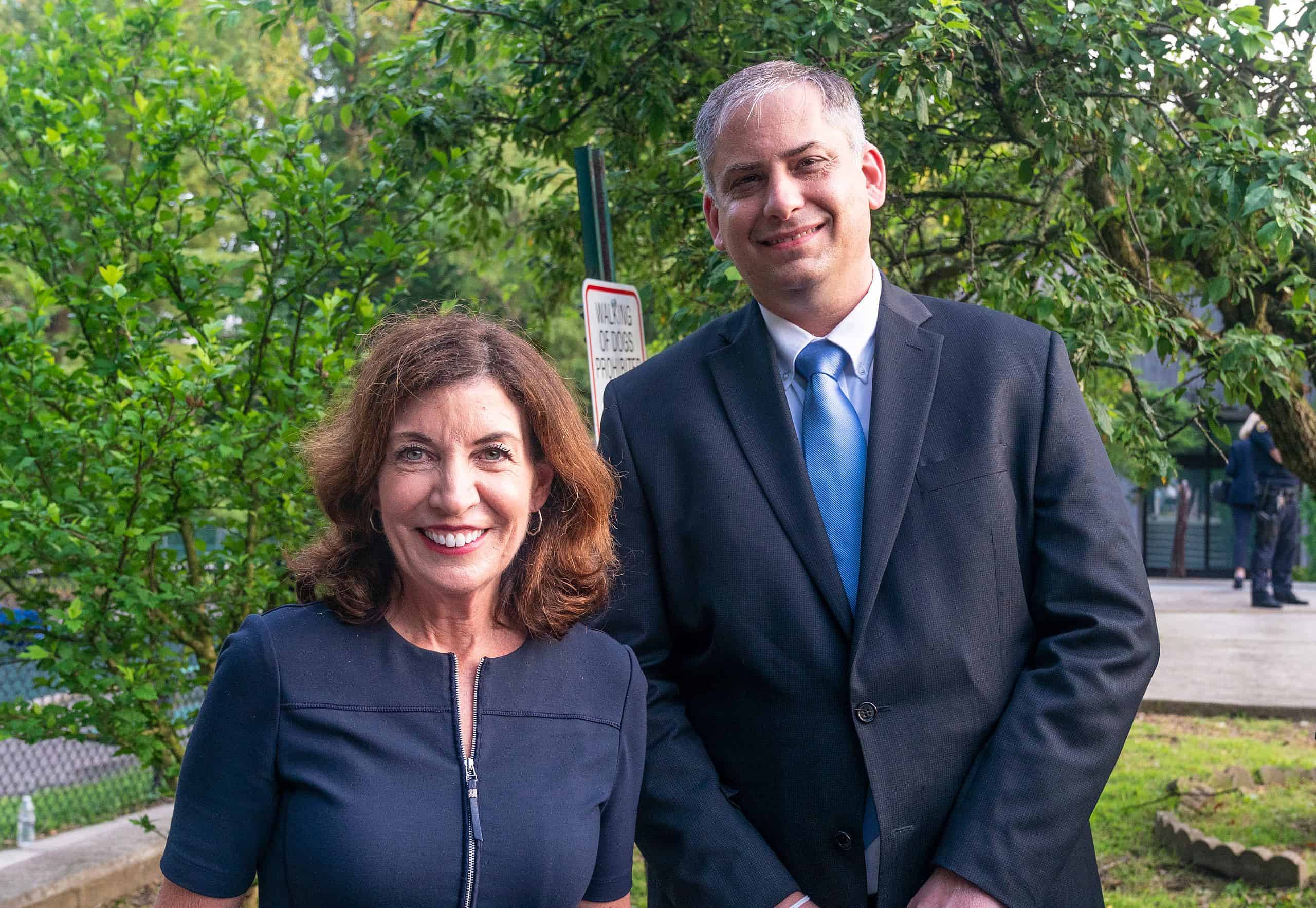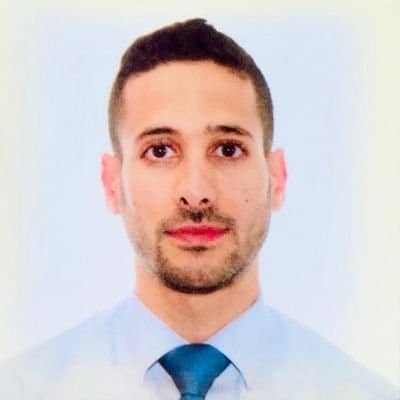Israel Nitzan has a linebacker’s build. But in the final hours of his diplomatic posting in New York City, his eyes looked weary, his broad shoulders slumped a bit, and he looked like a man trying to power along until the clock hits zero.
The consul general’s office in New York is traditionally one of the premier postings for an Israeli diplomat. But the past five years have been anything but traditional. Nitzan departs the Big Apple this week exhausted but thankful for his five-year tenure on Second Avenue.
The man who was Israel’s last representative in Egypt in 2011 following the attack on Israel’s embassy in Cairo—from where his family was evacuated under the cover of darkness—spoke with JNS at the consulate in New York.
Nitzan was brought on as deputy consul general—his second stint in that role—in August 2018. He was named acting consul general in April after Asaf Zamir, a political appointee, resigned in protest of current Israeli government policies. A civil servant, Nitzan has remained above the political fray, even as critics of the Israeli government hold protests outside the consulate.
“A crisis is always an opportunity. Throughout the pandemic, of course, the world stood still. But there was also one advantage, which is Zoom, that actually connected us all together,” Nitzan said. “Back then, we understood that Israel has some added values and a very unique experience that we can actually share with our friends here.”

‘Build meaningful relationships at grassroots level’
Nitzan cited lessons that Israel shared with New York and surrounding states about its successful vaccination drive. At that time, he helped connect local nonprofits with the Israel Trauma Coalition to guide New York communal leaders on dealing with trauma caused by the pandemic, including the psychological impact on first responders.
“We’re basically looking for all opportunities to be relevant and to be helpful, to bring the Israeli experience, and to provide our help and our assistance wherever it’s possible,” he told JNS.
The consulate’s multifaceted role includes building and maintaining ties with local and regional political officials, and Nitzan’s tenure has overlapped with a stormy political horizon, both stateside and in Israel.
“I’ve learned a lot about the relationship with the United States. People usually think the relationship—and we’re talking about the strategic alliance—is deep. It’s much more than that,” he said.
“Our mission here is to build these meaningful relationships at the grassroots level with community leaders, with elected officials, and to create this strong bond between the people in Israel and in the United States,” he added. “Of course, there’s no better place to do that than in New York.”
‘Shared values and deep bond between people’
New York City affords abundant opportunities for partnerships with other prominent demographic and cultural communities, according to Nitzan, who cites the consulate’s engagement with the Puerto Rican community. It holds an annual bond-building trip to a conference on the island, and the Israeli humanitarian organization IsraAID built water-purification systems for Puerto Ricans in the aftermath of Hurricane Maria.
“Our goal is to create this very strong and meaningful relationship that goes beyond the politics,” he said. “As allies, we’re talking about our shared values and the deep bond between people.”
Nitzan has witnessed profound changes in the American Jewish community, and he has been forced to keep up with quickly changing trends in religious observance and political affiliation trends.
“We follow, of course, the developments and the trends,” he said.
He described the consulate in New York City as “informally the Israeli embassy to the American Jewish community.” Many Jewish organizations are headquartered in all five boroughs, and about 45% of American Jews live in the five states for which the consulate is responsible: New York, New Jersey, Ohio, Pennsylvania and Delaware.
Israel does not intervene in developments within the Jewish community, according to Nitzan.
“We have a responsibility to build the relationship between our mishpachot, between our families, to create these meaningful experiences and to bring Israel to be a strong and important part of the Jewish identity,” he stated.

‘Non-political and non-denominational’
The consulate staff approaches its work with American Jews much like it makes Israel’s bipartisan case in New York.
“It’s not less sensitive. We keep a wide-tent approach to engage with as broad a spectrum of communities in a way that would be non-political and non-denominational,” he said. “We’re engaging with everyone.”
Indeed, the Jewish state is willing to engage with any willing other party, and the consulate tries “to keep Israel a meaningful part of the Jewish identity of the American Jewish community,” said Nitzan.
One of his final projects was helping arrange for New York City Mayor Eric Adams to visit Israel, where he has been meeting with political, religious and other leaders.
As Adams returns to New York on Thursday, Nitzan will be turning over the consulate keys. He told JNS that the mayor’s visit is important on many levels.
“New York City is not just another city, and the mayor of New York City is not just another mayor,” he said. “We’re looking for opportunities for further collaboration between the State of Israel and New York City in different fields of technology innovation.”
Nitzan noted that Adams is vegan and that Israeli food technology is increasingly eliminating the need for animal products.
“In the context of the Jewish community, it’s very important,” he added of the visit. “The mayor just visited Yad Vashem, issuing very strong statements against antisemitism. I think that his leadership is critical in fighting this phenomena that we’ve seen—this unacceptable spike in antisemitism in the last several years.”
‘Just another diplomat’
A native of Netanya—just north of Tel Aviv along the Mediterranean coast—Nitzan has worked in the Israeli Foreign Affairs Ministry for 22 years. Beyond his tenure as deputy Cairo chief of mission and his New York consulate roles, he spent nearly six-and-a-half years working on U.N. political affairs, both as a minister-counselor at the Israeli mission to the United Nations in New York and as director of the U.N. political-affairs department in Jerusalem.

His breadth of experience lends itself to passing helpful advice to his successor, Tsach Saar, currently deputy head of mission at the Israeli embassy in Athens, Greece. Saar begins his term in New York on Sunday.
“I think that he should listen, first of all. The goal here is to build relationships. It’s a long-term mission,” he said.
“With all due respect to my work in the last five years, I’m just another diplomat basically carrying out this work that started many years ago,” he added. “You should sit. You should listen. And, first of all, be a mensch.”
So what’s next for the married father of four? Nitzan isn’t quite sure. But a look in his eyes appears to say it all.
“I’m still considering my next steps. It’s been, as I said, an eventful five years,” he told JNS, seemingly ready to exhale before realizing his mission isn’t quite complete.
“I need to take some time off,” he said, “and I will explore my options.” JNS
Recent Comments